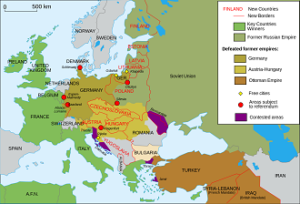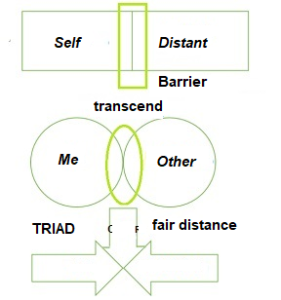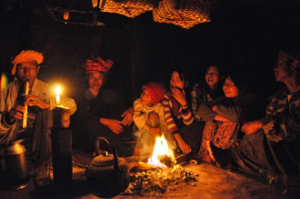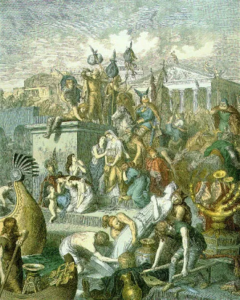
Arquivo para June, 2024
Tensions and pressure for peace
The G7 summit managed to bring together 90 countries and met without the presence of Russia and without the approval of China, which considered Russia’s participation essential, the Kremlin’s reaction was ironic in relation to the meeting that demands that Ukraine’s territory be kept in In all its integrity, despite Zelensky’s diplomatic victory, the war battle continues to be cruel.
countries and met without the presence of Russia and without the approval of China, which considered Russia’s participation essential, the Kremlin’s reaction was ironic in relation to the meeting that demands that Ukraine’s territory be kept in In all its integrity, despite Zelensky’s diplomatic victory, the war battle continues to be cruel.
On Thursday (13/06) the USA signed a ten-year cooperation pact with Ukraine, which puts it on an equal level with the partnership with Israel, however a Russian nuclear ship that arrived in Cuba raises the level of tension close to the famous missile crisis in the 1960s, although today global involvement in the crisis is much greater as much of Europe feels threatened by Russian military incursions and militarization is increasing as a more nationalist political turn evolves.
In addition to the 7 countries that make up the G7 US, UK, Canada, Canada, Italy, Japan and France, another 82 countries attended the meeting that discussed a possible peace agreement in the war in Eastern Europe, highlighting the presence of Pope Francis, remembering that the Vatican is also a sovereign state.
Also noteworthy is Prime Minister Modi of India defending the well-being of the Global South, emphasizing the importance of Africa in global affairs, a point that escapes much debate, but some aspects of colonialism still survive, both in the economic and social aspects. cultural, and the defense of these countries is essential.
In 1918, with the end of the First World War, American President Woodrow Wilson proposed a “peace without winners”, although Germany should be better analyzed in the agrément (in the photo the countries of the Treaty of Versailles, 1919, which established the borders).
Little known, the 14 points that established a new peace policy after the Second World War, known as the 14 points, were the following: 1. Open diplomacy without secret treaties, 2. Free economic trade on the seas during war and peace, 3 .Equal trading conditions, 4. Decrease armaments among all nations, 5. Adjust colonial claims, 6. Evacuation of all Central Powers from Russia and allow it to define its own independence, 7. Belgium will be evacuated and restored, 8. Return of the Alsace-Lorraine region and all French territories, 9. Readjustment of Italian borders, 10. Austria-Hungary will be given an opportunity for self-determination,11. Redraw the borders of the Balkan region creating Romania, Serbia and Montenegro, 12. Creation of a Turkish state with free trade guaranteed in the Dardanelles, 13. Creation of an independent Polish state and and 14. Creation of the League of Nations.
Today there are new issues such as the real borders of Ukraine, the lack of a territory for the Palestinian people (Hamas is just a group from this nation), the forgotten Kurdish people, the conflicts in the Kashmir region (there is an Indian and a Pakistani one) , the end of conflicts and tensions in Africa that hide new colonialism and some guarantees of peace on Russia’s borders that can very well be understood (Russia calls them “neutral” regions) and the complex tension Taiwan x China.
Ultimately, it is not impossible, but it is necessary to draw a global map of peace and isolate governments and groups that threaten the freedom and autonomy of people.
Stories of a future life
There are many visions and even prophecies about the contemporary polycrisis, it goes beyond thinking and reaches social life, politics and wars on a worrying scale, but the
about the contemporary polycrisis, it goes beyond thinking and reaches social life, politics and wars on a worrying scale, but the
The question is what are the reasons to have hope, and at the same time what Edgar Morin called “resistance of the spirit”, in the final sections of The crisis of Byung-Chul, he criticizes current politics: “political narratives offer the perspective of a new order of things, they paint possible worlds… we drag ourselves from one crisis to the next. Politics is reduced to problem solving. Today we precisely lack future narratives that give us hope.” (Han, 2023, p. 132).
The solution to specific and emergency problems is the solution to great problems, the “works” it can be visible and bring popularity to those in power, when they should have both the long-term perspective and the notion that they are short-term solutions implemented sparingly that lead to long-lasting, sustainable and effective responses and concludes Byung-Chul: “every action that transforms the world presupposes a narration” (idem) and thus there are few cases of immediate responses that are lasting.
There is a well-known narration that a young woman asks the man who was planting dates “why do you waste time planting what you are not going to harvest”, the man turned and he replied: if everyone thought like you, no one would eat dates.
The idea that things can be quick and simple is present in today’s storytelling: how to lose weight effortlessly, how to learn this or that complex job in just a few lessons, how to speak clearly and simply about a problem with a complex solution and many other “magic” formulas that have little magic and enchantment, are narratives that aim to sell and easily consume products whose effectiveness is questionable.
The first idea is to understand medium and long-term solutions, second is to be suspicious of easy solutions that are not lasting and third to admit that a complex problem it requires a longer narration and silent listening to different voices and different listenersto listen carefully.
To a biblical saying that says that the Kingdom of God is like a mustard seed (one of the smallest seeds), you plant it, in years it grows and becomes a leafy tree and only it depends on its own nature and waiting time (Mark 26-27).
Says Byung-Chul Han in his final paragraph: “in the world of storytelling, everything is reduced to consumption. This blinds us to narratives, other ways of life, other perceptions and realities” (p. 132-133).
Han, Byung-Chul (2023). A crise da narração. Trad. Daniel Guilhermino. Petrópolis: ed. Vozes.
Justice, fairness and morality
 The three words are important at a time of great crisis in thought (what is), what is an idea, and the idea of justice or the just, explored by current thinkers such as Jurgen Habermas (we mentioned in a previous post on the issue of including Outro) and we quote in passing the two volumes of Paul Ricoeur o Justo (volume two published by Martins Fontes) although the author himself says that it is an essay, he penetrates a deeper aspect, the question of truth and morals.
The three words are important at a time of great crisis in thought (what is), what is an idea, and the idea of justice or the just, explored by current thinkers such as Jurgen Habermas (we mentioned in a previous post on the issue of including Outro) and we quote in passing the two volumes of Paul Ricoeur o Justo (volume two published by Martins Fontes) although the author himself says that it is an essay, he penetrates a deeper aspect, the question of truth and morals.
Reading the text, Inclusion of the Other by Habermas, clarifies that in philosophical terms, that morality in John Rawls, in Kantian terms, has differences between Kant’s original political liberalism and Kantian republicanism, which is how Rawls defends it, this would be enough, but there is a long analysis in Volume 1 by Paul Ricouer on justice in Rawls.
To understand Ricoeur’s book 2 it is necessary to understand that for the Greeks the first philosophy is that which for them, and the ontological resumption has to do with this, metaphysics as questions about Being, existence, the cause and the meaning of reality and physis (nature) must be placed prior to the second, aspects linked to logic and ethics.
Book 2 addresses what seems most essential in Ricoeur, although he confesses that it is an essay, its goal is “to justify the thesis that theoretical philosophy and practical philosophy are of equal levels; as none of it is first philosophy in relation to what Stanislas Breton characterized as the meta- function (I myself defended this reformulation of metaphysics in terms of the meta- function, in which “the maximum genres” of the dialectic of Plato’s last dialogues would be united and Aristotelian speculation on the plurality of the meaning of being or beings) “ (Ricoeur, 2008, p. 63) … but he did not speak (initially it was written in a conference) about this but rather about the two second philosophy.
His analysis is based “initially, thinking about justice and truth without each other; in a second moment, think about them in a way of reciprocal or crossed presupposition” (Ricoeur, 2008, p. 64) and this undertaking “has nothing revolutionary, it is located in the line of speculations about transcendentals…” (idem) .
When approaching the first stage of the analysis: “I thought of Rawls’ statement at the beginning of Théorie de la justice: “Justice is the first virtue of social institutions, just as truth is the first virtue of theories” (pg. 65) and There the author takes up the ethical part of another text of his: Soi-même comme um autre, to “guarantee the eminent status of justice”.
The idea developed there is that this triad leads to “equity”, it is not the dualism between the Self and the Other (the next one also uses Ricoeur), “the triad belongs to the horizontal axis and does not consist absolutely in the simple juxtaposition between the self, the near and far; it is the same dialectic of the self. The desire to live well roots the moral project of life, in desire and lack, as marked by the grammatical structure of the desire… but without the mediation of the other two terms of the triad, the desire for a good life would be lost in the darkness of the variable figures of happiness… I would say that the short circuit between wanting a good life and happiness is the result of ignorance of the dialectical constitution of the self” (pg. 66).
The author formulates the idea of distance in these terms: “fair distance, a middle ground between the very little distance typical of many dreams of emotional fusion and the excess of distance fueled by arrogance, contempt, hatred of the strange, unknown. I would see in the virtue of hospitality the closest emblematic expression of this culture of just distance” (pg. 66).
Justice on the vertical axis, that of power and norm, is seen by the author as follows: “on the vertical axis that leads to the pre-eminence of practical wisdom and, with it, justice as equity, a first observation can be made regarding the relationship between kindness and justice. The relationship is neither one of identity nor difference; goodness characterizes the goal of the deepest desire and, thus, belongs to the grammar of wanting. Justice as a fair distance between the self and the other, found as distant, is the fully developed figure of kindness. Under the sign of justice, good becomes common-good” (pg. 67).
I consider the triad to be the self, the other and the distant, if also seen as a transcendent alterity, there is another “unknown” that can be divine and a carrier of messages, in network theory for example the “weak link” is considered fundamental , Ricoeur’s essay is rich, however, when returning to the question of the Kantian categorical imperative, which justifies political idealism, I believe that Habermas is correct in stating that this is the mistake in John Rawls’ consistent and very current “A Theory of Justice”. influential.
A part of the biblical reading can expand the concept of this distant as transcendent otherness (Mt 5,20): “Unless your righteousness is greater than the righteousness of the teachers of the Law and the Pharisees, you will not enter the Kingdom of Heaven”, which in the deontological sense one could say “you will not enter into the truth of justice”.
A part of the biblical reading can expand the concept of this distant as transcendent otherness (Mt 5,20): “Unless your righteousness is greater than the righteousness of the teachers of the Law and the Pharisees, you will not enter the Kingdom of Heaven”, which in the deontological sense one could say “you will not enter into the truth of justice”.
Ricoeur, P. (2008) Justo 2: justiça e verdade. (Fair 2: justice and truth and other studies). Trans. Ivone C. Benedetti. Brazil, São Paulo: Martins Fontes.
The forgotten language of the Akkadians
Many narratives from the past were engraved on the walls, such as the famous Rosetta stone, it helped to spread the Syrian language, the Bible and its students (exegetists are a small part of the most orthodox interpreters of the Bible) we preserved Aramaic and ancient Hebrew, After a century of study, several researchers, including Irish researcher Martin Worthington, helped discover a mural of several found in excavations in the city of Dūr-Šarrukīn, in ancient Assyria and in present-day Iraq.
the walls, such as the famous Rosetta stone, it helped to spread the Syrian language, the Bible and its students (exegetists are a small part of the most orthodox interpreters of the Bible) we preserved Aramaic and ancient Hebrew, After a century of study, several researchers, including Irish researcher Martin Worthington, helped discover a mural of several found in excavations in the city of Dūr-Šarrukīn, in ancient Assyria and in present-day Iraq.
Historians identified a pattern on the wall repeated by a lion, a bird, a bull, a tree and a plow, but its meaning remained unknown.
Focusing on these studies, the professor at the School of Languages, Literatures and Cultural Studies at Trinity College, in Dublin, states that the images on our walls represent the name of King Sargon II and the constellations reinforce his imperial power at the time, with two first great western empires.
The Assyrian words two five symbols placed in the correct order would function as a sound that would give rise to the name “Sargon” (šargīnu), and would thus mean the power to stop King Sargon II and the historical period has great significance for much for the origin of Arab ancient cultures, such as Semitic and Akkadian, we have already posted here the Semitic extension and whose particularity with the Hebrews gave rise to the contemporary name of Semitic origin, but the Akkadians are not confused with this ancient origin.
They formed the first large centralized empire in the region, they predate the Babylonian period and hence their historical importance, the Semites were a distinct and educated people and did not mix with the numerous Semitic group of the time (Islamic, Jewish and Christian descended from this line). and the Akkadian empire dominated them for 180 years.
The name Semitic comes from Shem, son of Noah (the guy who built the ark) while the Akkadians remain unknown on this origin, but the mural is certainly Akkadian.
The mural also represents specific constellations, some familiar ones such as the constellations of Leo and Taurus, the bird represents Aquila, a constellation in the northern hemisphere, the plow would be named after an ancient Babylonian constellation, epinnu, today known as part of Andromeda and the Triangle Boreal.
The most controversial interpretation defended by Worthington argues that the tree in the Akkadian pronunciation is isu, similar to that of isu, the ancient constellation of the Jaw and thus would complete his analysis giving rise to the name of king Sargon II (šargīnu), Worthington is also known for helping in the current scripts for Marvel’s Eternals and Godzilla II: King of the Monsters and this makes it possible to understand his personality and taste for old narrations a little better.
“The effect of the five symbols was to place Sargon’s name in the heavens for all eternity – a clever way of making the king’s name immortal. And, of course, the idea of extravagant individuals writing their names on buildings is not unique to ancient Assyria,” says Worthington, so in Akkadian fashion the king devised a way to write on walls throughout the kingdom: “Sargon was here” and perpetuated his name in history, emperors and dictators always thought they were gods.
The Other as a political category
In the history of philosophy, Being, Entity and Essence were three fundamental metaphysical categories, as modern philosophy threw the “dirty water with the child in the basin”, in addition to the forgetfulness of Being as pointed out by Heidegger and his interpreters and dialogues (Hannah Arendt, Hans-Georg Gadamer, Peter Sloterdijk, Byung-Chul Han and others), there is also a rediscovered, or even new, category from outside religious culture: the Other, seen as the “neighbor”, the “brother” or the “faithful”.
Essence were three fundamental metaphysical categories, as modern philosophy threw the “dirty water with the child in the basin”, in addition to the forgetfulness of Being as pointed out by Heidegger and his interpreters and dialogues (Hannah Arendt, Hans-Georg Gadamer, Peter Sloterdijk, Byung-Chul Han and others), there is also a rediscovered, or even new, category from outside religious culture: the Other, seen as the “neighbor”, the “brother” or the “faithful”.
Paul Ricoeur wrote about the neighbor and the partner, to differentiate the relations between the two in the modern utilitarian relationship, but also Lévinas (Time and the Other), Martin Buber (I and You) and Byung-Chul Han, in a more contemporary analysis, wrote The Expulsion of the Other, but Junger Habermas’ work “The Inclusion of the Other – Studies in Political Theory” is one, as the title says, that tries to include this analysis within the modern polis, it says in the introduction: “I defend the content rational basis of a morality based on the same respect for all and the general joint responsibility of each one for the other” (Habermas, 2002, p. 7) and condemns the distrust of a universalism marked more by the appeal to difference than “the same respect for everyone extends to those who are similar, but to the person of the other or others in their otherness” (idem).
The author says: this moral community is not just the mere inclusion of the Other (pg. 8)”, but the “inclusion of the other” means that the borders of the community are open to everyone – also and precisely to those who are strangers who are strangers each other – and they want to continue being strangers and constituted exclusively by the idea of discrimination and suffering” (pg. 8 and the entire first part of the book refers to this issue.
The second part refers to a reply and a discussion with John Rawls, who was invited by the editor of the Journal of Philosophy, where he analyzes in terms of concepts, the moral institutions that guide Rawls and clarifies that his reply also serves the purpose of clarifying “the differences between political liberalism and a Kantian republicanism as I understand it” (pg. 8), I remember that also Paul Ricoeur “The Just or Essence”, written in two volumes, also aborted the ideas of John Rawls.
The third part of the book “intends to contribute to the clarification of a controversy that resurfaced in Germany after reunification. I continue to follow the line that I began in the past in an essay on `Citizenship and National Identity’” (pg. 8), but the author knew that the theme would be so current today.
The fourth part was one of the motivations for this post, as Byung-Chul Han talks about Kant’s eternal peace, the author talks about human rights at a global and national level (in Germany obviously), on the occasion of the bicentenary text on Peace Kant’s perpetual, “The light of our historical experience”.
The book will have a no less thought-provoking fifth part on “the theory of discourse regarding the conception of democracy and the rule of law” (pg. 9) and this is all just the author’s preface, and the first topic is about the cognitive aspect of morality, which must be prior to the other chapters, as it presents its foundations.
The author writes: “moral manifestations bring with them a potential of motives that can be updated with each moral dispute” (pg. 10) and thus “moral rules operate by making references to themselves” (idem) and will establish “for this two levels retroactively coupled to each other” (pg. 12).
At the first level, they direct social action immediately, to the extent that they compromise the will of the actors and guide it in a determined way” (pg. 12).
At the second level, “they regulate critical positions in the case of conflict… it does not just say how members of the community should behave… it provides reasons to consensually resolve conflicts of action” and sees this in a way very analogous to Wittgenstein’s language games where polyphony is established.
The theme is close to Byung-Chul Han’s Narration Crisis because both, and this also includes John Rawls and Martin Buber although in quite different ways, as Han clarifies: “the face requires distance. He is a You, and not an available It” (pg. 96), and penetrating Communicative Theory, Habermas’ great thesis, Han sees so much in his idea of psychopolitics in the Swarm from a digital perspective, that the only possibility of symmetry is respect , power relations are asymmetrical, and for him so are communicative ones.
Who is the Other, the one I meet and who is often very different from me, if he wishes me peace, says the biblical passage, we will sit and have dinner together.
Han, Byung-Chul (2023). A crise da narração (The crisis of narration). Trans. Daniel Guilhermino. Brazil, Petrópolis: ed. Vozes.
Habermas, Jürgen (2002) A inclusão do outro – Estudos de Teoria política. (Die Einbeziehung des Anderen – Studien zur politischen Theorie). Trans. Georg Sperber, Paulo Astor. Edições Loyola, São Paulo, Brasil.
The disenchantment of the world and hope
War is the height of disenchantment, but it is reproduced in narratives, intolerance and small everyday wars that cause the expulsion of the Other, especially when there are different interpretations and visions of what the “facts” are, but they use small wars hidden in their narratives and in a restricted context where it is valid.
is reproduced in narratives, intolerance and small everyday wars that cause the expulsion of the Other, especially when there are different interpretations and visions of what the “facts” are, but they use small wars hidden in their narratives and in a restricted context where it is valid.
The disenchantment of the world, now taken up by the crisis in Byung-Chul Han’s narration, was once the theme of Max Weber who referred to the phenomenon as a process in which the modern subject began to strip away customs and beliefs based on inherited traditions or learned under the fixed pillars of religions or “magic”, nothing more convergent with Han, however it is important to understand how this penetrated the language.
To be coherent with the theme, the final chapter of the Narration Crisis (there is another one in I know it is Storyselling, but I opt for the resistance of the spirit), which we posted notes on last week, begins with the narration of Peter Nadás, of a village that gathered around a large wild pear tree, and there they tell stories to each other, it forms a narrative community “that carries values and norms, intimately linking values and norms” (Han, 2023, p. 121), in it the village indulges in “ritual contemplation”.
Nadás says at the end of his essay: “I still remember how, on hot summer nights, the village used to sing softly […] under the big wild pear tree […] Today there are no more of those trees, and the singing of the village has become silent” (Han, 2023, p. 122, citing Nadás), and “this community without communication gives way to communication without community”.
He imagines like other authors, even cites Kant’s Pax Eterna, but his philosophy also constructed the modern narrative, and says as Edgar Morin dreamed and imagines a radical universalism “a global family” beyond nation and identity (pg. 125 and says “poetry elevates each individual through a peculiar connection with everything else” quoting Schriften Novalis, and this narrative community rejects the exclusionary narrative of identity.
“Political action in an emphatic sense presupposes a narrative” (pg. 126) and presupposes a narrative coherence, recalls Hannah Arendt “for action and speech, whose close interrelationship in the Greek conception of politics we have already discussed [in this blog as well], are in fact the two activities that, in the last instance, always result in a story, that is, in a process that, however arbitrary and random it may be in its individual events and causes, it still has enough coherence to be narrated” (Han, 2023, p. 127), I remember in previous posts Arendt’s idea, also used by Byung-Chul of vita activa and vita contemplativa.
From the final chapter I take advantage of his “To live is to narrate. Humans, as animal narrans, differ from animals in that they are capable of realizing new forms of life through narration. Narration has the power of a new beginning” (pg. 132) which is a sign of hope for humanity in a growing crisis.
Han, Byung-Chul (2023). A crise da narração (The crisis of narration). Trans. Daniel Guilhermino. Brazil, Petrópolis: ed. Vozes.
Disenchantment, narration and pain
Chul Han remembers a very well-known habit in many societies, which is telling children bedtime stories, I remember that it is old because they are famous: Aesop’s fables (ancient Greece), the tales of the Brothers Grimm, the stories organized by Charles Perrault and many others, Han will choose a little-known story (at least here in Brazil) by Paul Maar of young Konrad that he didn’t know how to narrate and his sister Susanne asks him to tell her a bedtime story.
many societies, which is telling children bedtime stories, I remember that it is old because they are famous: Aesop’s fables (ancient Greece), the tales of the Brothers Grimm, the stories organized by Charles Perrault and many others, Han will choose a little-known story (at least here in Brazil) by Paul Maar of young Konrad that he didn’t know how to narrate and his sister Susanne asks him to tell her a bedtime story.
The parents, on the other hand, liked to narrate, they were “almost addicted to it” and when the father finishes telling a story, the mother writes R for Roland on the paper and when the mother finishes telling the story, the father writes an O for Olivia, but the parents realize that Konrad can’t tell stories and send him to a certain Miss Muhse, he arrives at a small house and the lady who knows that he has come to learn how to tell stories asks him to go up a ladder and take a small package to his sister, but the The stairs seem endless until they meet a wall that opens like a door.
Inside it is all dark and he sees an owl with a strange voice and conversations and realizes that there is no floor and falls down a long path, finding Miss Muhse at the end who gives him another package and asks him to take it to her brother downstairs as he did not deliver the first one, Konrad is confused because he thought he had fallen to the ground floor, and he falls again into the “dark spaces” of the house and again Miss Muhse arrives who is now smoking a fine cigar and knows that he didn’t deliver the package and gives him another one again, he says “I’m not here to deliver little packages, I’m here to learn how to narrate”, she sees that she’s a lost cause, opens a door in the wall and says: “Happy sorting and all about bread” (she always changes the sayings) and this time he is back at his parents’ house (pages 74 to 77).
His parents and little sister are having breakfast and he says excitedly: “I have to tell you. You won’t believe what I experienced…”, Konrad’s world is now different and now his parents write K (for Konrad) on the paper they wrote down their narrations.
The disenchantment of the world is when everything is reduced to causality, facticity (today’s narratives say facts don’t lie, but under a partial interpretation), Walter Benjamin says that “children are the last inhabitants of the enchanted world” (pg. 79), I would say there is no more lightness, empathy and imagination in the “adult” world.
“Children today hunt for information like digital Easter eggs” (pg. 80), today the “lack of narrative interiority distinguishes photographs from souvenir images… photographs portray data without internalizing it… they don’t want to say nothing… “ and this is why I conclude that data may not be, and almost always is not, information.
It is even more difficult to understand what knowledge is as an experience: “the narrative is opposed to chronological facticity” (pg. 81), recalls Han reading Marcel Proust and also Benjamin that the aura is precisely the “distance of the gaze that awakens in the observed object ” (pg. 82) and will also remind you of Karl Kraus quoted in Benjamin: “the closer you look at a word, the further away it seems to be” (pg. 83).
The denarrativized memory is like a “junk store” here the author remembers Paul Virilio (Information and Apocalypse) being the “deposit full of all kinds of completely disordered, poorly preserved images and worn out symbols” (pg. 84), where one finds makes “a pile of data or information does not have a story. It is not narrative, but cumulative” (pg. 84).
This chapter ends in a very pleasant and sensitive way, after quoting excerpts from the works of Susan Sontag, Adorno and Gershom Scholem, paraphrasing the latter he writes: “The mythical fire in the forest has been forgotten. We no longer know how to say prayers. We are also not capable of secret meditations” (pg. 89) and I would say taking advantage of the topic Pain from the book “Heidegger’s Heart: on the concept of tonality” (see previous posts) we no longer know the meaning of pain, of affection and we have lost any notion of the “whole”.
Han, B.C. (2023) A crise da narração (The crisis of narration). Transl. Daniel Guilhermino. Brazil: Petrópolis, Vozes.
Narration, digital culture and orality
Still in the section on Poverty and experience, quoting Walter Benjamin, Byung-Chul wrote: “We became poor. We abandoned all the pieces of human heritage one after another, many of them had to pawn a hundredth of their value to receive in exchange the small currency of the ‘current’. The economic crisis is at the door, behind it is a shadow of the next war” (Han, 2023, pg. 37-38, citing Poverty and Experience by Benjamin), it was the threshold of the 2nd. World War.
quoting Walter Benjamin, Byung-Chul wrote: “We became poor. We abandoned all the pieces of human heritage one after another, many of them had to pawn a hundredth of their value to receive in exchange the small currency of the ‘current’. The economic crisis is at the door, behind it is a shadow of the next war” (Han, 2023, pg. 37-38, citing Poverty and Experience by Benjamin), it was the threshold of the 2nd. World War.
In which modernity sums up happiness, the author explains “happiness is not a one-off event (pg. 43), today “when everything throws us into a current frenzy, when we are in the middle of the storm of contingencies, we are unhappy” ( pg. 44), recalls Marcel Proust “In Search of Lost Time” who understood the “rescue of the past as the narrator’s task” (pg. 45) and modern life as “a muscular atrophy”.
Disagreeing with Heidegger to reaffirm its contextual importance (also for today): “Being and time is not a timeless analysis of human existence, but a reflection of the temporal crisis of modernity” (pg. 45), “the being-itself of Heidegger is prior to the narrative context of life produced later. Being-a-i assures itself before telling itself a coherent story regarding the world of interiority” (pg. 47) and this explains the book we previously posted here, Heidegger’s Heart.
After a speech on some pages about new media: Phono sapiens, selfies, Facebook, it is a fixation of the author even though he recognizes Benjamin before this, even though he says correctly: “they are aligned in a syndetic way, without any narrative nexus” (pg. 51), recognizes that “Human memory always makes choices. In this aspect, it differs from a database”, a fundamental technical precision, which some people sometimes confuse with data without information, information without knowledge.
It predates even the emergence of the Gutenberg press and belongs to oral culture: “autobiographical narration presupposes a subsequent reflection on what was experienced, a work of conscious remembrance” (pg. 53) while “the quality of the data is better as they contain less consciousness” (idem), but it is necessary to remember the semantic search, the linking of data (linked data) and the use of Artificial Intelligence for narration that makes possible a consciousness beyond the “libidinal conscious” (idem) without ethics or morals.
Without mentioning oral culture, but the excerpt reminds her: “if everything that was experienced is present without distance, that is, it is available, the memory reappears” (pg. 56) and adds: “a flawless reproduction of the experience does not is a narrative, but a report or record” (ibidem) and remembers that whoever wants to narrate or remember “needs to be able to forget or let a lot of things slip” (pg. 57) and cannot be talking about anything other than the written culture, as oral culture is capable of forgetting details but will always remember what is experienced and through it remember the essentials and remember tradition.
Remembering the masters of cultures, their teachings and experiences is nothing other than oral culture, written culture is a “database”, a memory without reflection.
Han, B.C. (2023) A crise da narração (The crisis of narration). Transl. Daniel Guilhermino. Brazil: Petrópolis, Vozes.
Experience, narratives and vision of the future
In the chapter that Byung-Chul Han deals with the poverty of the experience of modernity, remembering that it is not just about digital life as it predates it, he tells the fable of a man on his deathbed who tells his children that there is a treasure hidden in his vineyard (pg. 31), and after digging a lot, they finally understand that the vines in those lands produced more than any other (Han, 2023, pg. 31), in an important detail he explains that “it is characteristic of the experience that it can be narrated from one generation to the next” and this is what has been lost in the storytelling narrative.
the poverty of the experience of modernity, remembering that it is not just about digital life as it predates it, he tells the fable of a man on his deathbed who tells his children that there is a treasure hidden in his vineyard (pg. 31), and after digging a lot, they finally understand that the vines in those lands produced more than any other (Han, 2023, pg. 31), in an important detail he explains that “it is characteristic of the experience that it can be narrated from one generation to the next” and this is what has been lost in the storytelling narrative.
Narration presupposes tradition and continuity (Han, pg. 34) and it is this that “creates a historical continuum” while the poverty of experience is “animated by the pathos of the new” that “generalizes the new barbarity and transforms it into the principle of the new: Descartes belonged to this lineage of builders, who based his philosophy on a single certainty – I think, therefore I am – and started from it” (pages 34 and 35).
Paul Scheerbart reminds us that in his essay Glass Architecture “he talks about the beauty that would arise on Earth if glass were used everywhere” (pg. 38) and curiously, modern architecture is full of this “metaphor” (I also remember here the architecture (pg . 38), and they give a special aura as a means to the future, but as Han explains: “the future is an appearance of something far away” (page 39) that only the present cannot confer, this is a ‘feeling’. beginner”, which does not stay on the surface and which conceives a “different way of life”.
Exhausted late modernity is alien to the “beginner’s feeling” (page 40), “we profess nothing”, we are “comfortable” with convenience and like (idem), “information fragments time… reduced to a strip narrow view of current things”, I would add that we do not have reading, knowledge and reflection on previous things that made the history of culture and knowledge itself, not reduced to the Cartesian fraction of reason.
We are in a culture of “problem solving… in the form of compressed time” (page 41), but the author does not let slip a vision of the future: “life is more than solving problems… those that only solve problems no longer have a future… the narration reveals the future, only it gives us hope” (page 41).
The narrative is present in the background of different cultures, from religious to social and political, people built them more than their rulers and emperors who succumbed to them, Napoleon did not leave an imperial France, but a resigned one, Bismarck and Hitler did not leave a superb Germany, but knowing where philosophy found its roots, the colonial submission of the Americas and Africa, in the East there are still lapses of colonialism, leaving peoples more fighting and in search of their own narration, there is life beneath the dust that dictators and colonizers wanted to reduce us, I also remember the Eastern and Western cultures of religious narration, they are no less important, they support them.
Of course, there is also storytelling in this environment, false prophets and “pastors” who seek religious enslavement, but the biblical and oriental teaching is different and as it is a narration it cannot be confused with stereotypical and segmented reading, they also suffered from Cartesianism and idealism, when these “fake religious people” who demand a “modern narrative” that takes account of current storytelling.
Already at that time, Jesus was being asked about the existence of eternal life. He remembers the burning bush passage in which Moses had spoken directly to God (Mc 1,26): “As for the fact of the resurrection of the dead, have you not read in the book of Moses, at the burning bush, how God said to him: ‘I am the God of Abraham, the God of Isaac and the God of Jacob’?” and instead of denying the ancient narrative, it reaffirms that it is part of the tradition and that a new reality was already being written there.
Han, B.C. (2023) A crise da narração. Transl. Daniel Guilhermino. Brazil: Petrópolis, Vozes.
Violence , manipulation and resistance
Edgar Morin asked in an interview that when faced with a situation of polycrisis, we face it with resistance of the spirit, strength of character, opposition to hatred and opposition to small dishonest acts, but the most difficult thing is spiritual resistance, the narratives that go from politics and religiosity.
faced with a situation of polycrisis, we face it with resistance of the spirit, strength of character, opposition to hatred and opposition to small dishonest acts, but the most difficult thing is spiritual resistance, the narratives that go from politics and religiosity.
Clarifying as we did in the previous post, that when using Walter Benjamin who passed away in the 40s, what he was mentioning was about the press being concerned with hot news and not always thinking and digesting in depth the “slowness” as proposed by Byung-Chul Han the facts of reality, says Byung-Chul: “Digitalization sets in motion the process that Benjamin, due to his time, could not predict… associates information with the press. The press is a means of communication that follows narration and romance” (Han, pg. 27), remembering that it is the romantic vision that begins a process of death of narration.
We had already mentioned in previous posts Karl Kraus (1874-1936), an Austrian poet and journalist who was a strong opponent of the 1st. world war, a spirit of resistance of the time, alerted the boiling nationalist and militarist ideas, of which the press was a partner, and saw in war a manifestation of humanity’s collective madness.
In times of spiritual emptiness, it is very common for a warlike and passionate spirit to grow, there is no shortage of exalted spirits without any reflection in all media, the order is to promote disorder, the moral order is to promote the immoral, this madness feeds on warlike and sick spirits, they need collective madness for their war madness to thrive.
In an even earlier period, the [disordered] information regime stated George Büchner (1813-1837), quoting Byung-Chul: “we are puppets, whose strings are pulled by unknown powers; we are nothing, nothing ourselves” (Han, 2023, pg. 29), now “the powers are becoming more subtle and invisible, so that we are no longer aware of it. We even confuse it with freedom” (Idem).
The poverty of the narration experience, also pointed out by Benjamin and cited by Han: “what happened to all this? Who still finds people who know how to tell stories the way they should be told?” (Han, 2023, pg. 31), there is certainly no neutrality, but between two warlike forces a power of resistance is possible that denounces them.
In biblical reading, give to Caesar what belongs to Caesar (Mc 12,16-17): “They took the coin, and Jesus asked: “Whose figure and inscription are on that coin?” They replied, “Caesar’s.” Then Jesus said, “Render therefore to Caesar the things that are Caesar’s, and to God the things that are God’s.” And they were amazed at Jesus, because it was not an allied act but rather showing which side the power is on and which side are the peaceful men who truly want the common good of all.
After countless alliances with the Pharisees, in the year 70 AD the Roman Empire destroyed the second Jewish temple and whose reconstruction they dream of to this day, both lost, the Roman Empire also fell in the year 476 to the German leader Odoacer , the barbarians had already undermined the political, financial and military power of the Empire (in the photo the Visigoths sacking Rome).
Han B.C. (2023) A crise da narração (The crisis of narration). Transl. Daniel Guilhermino. Brazil, Petrópolis, RJ: Vozes.

